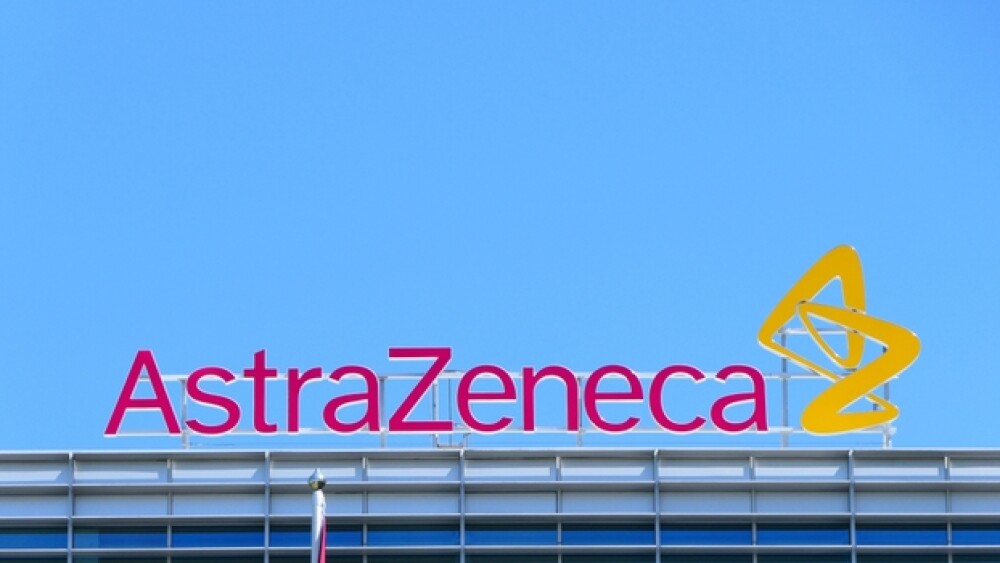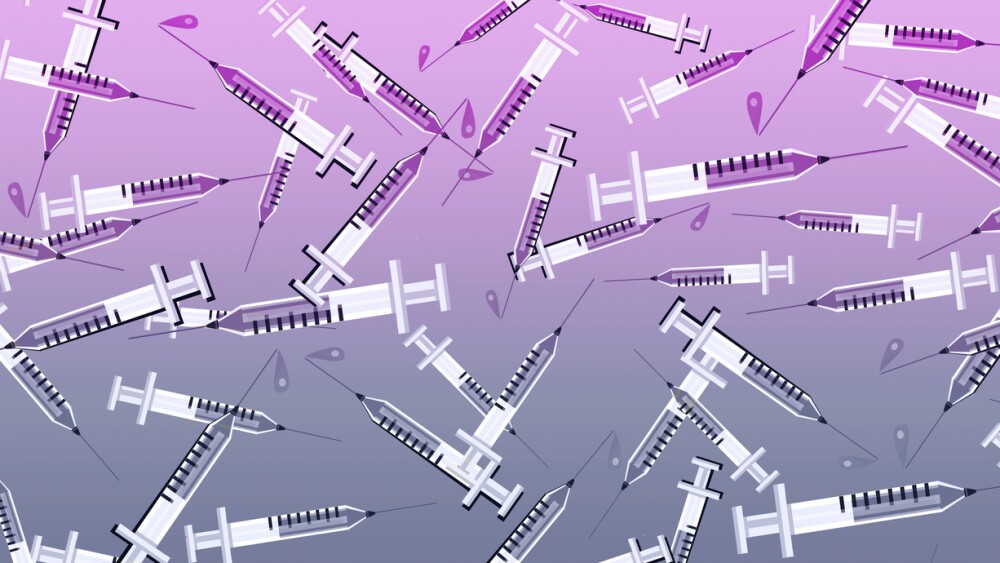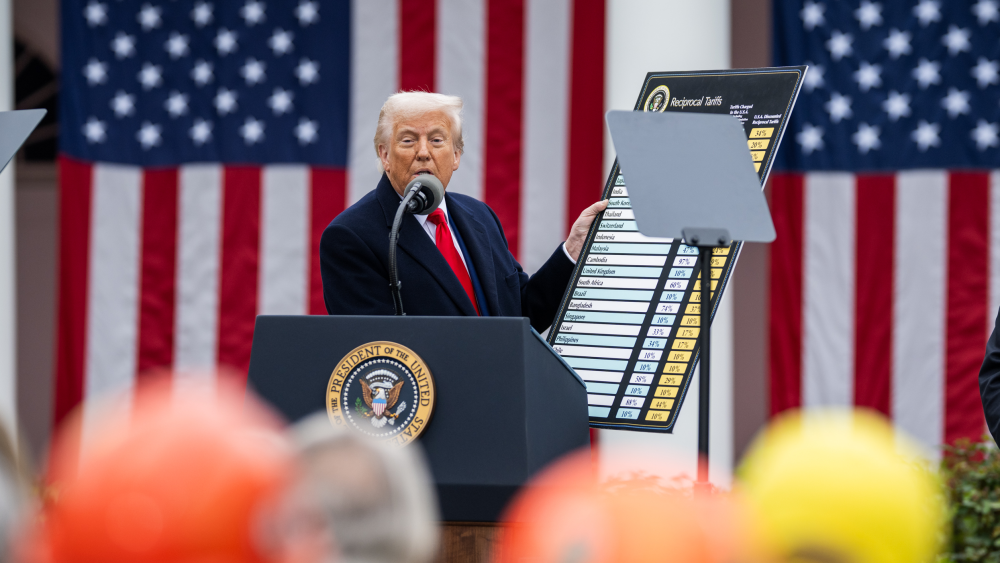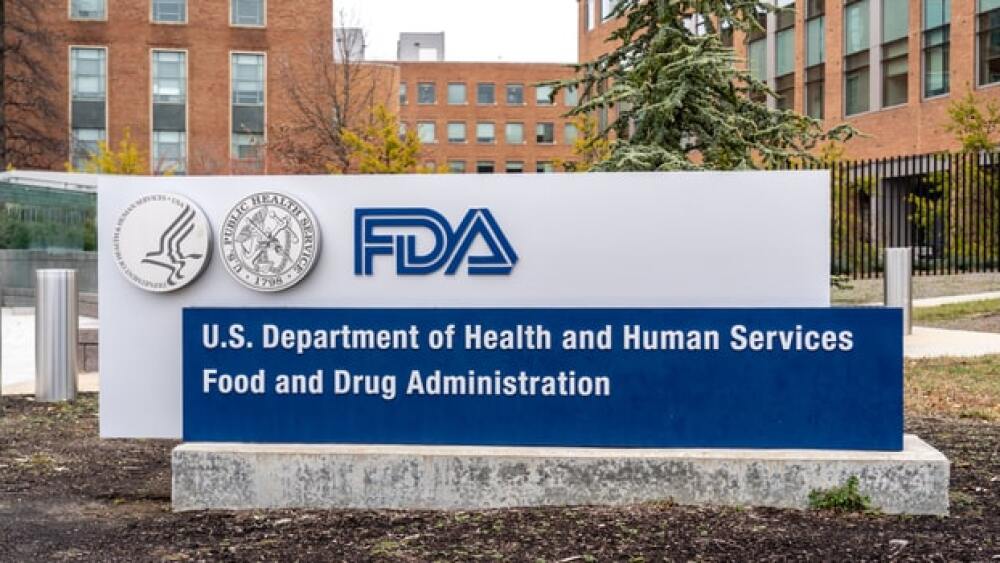Shares of AstraZeneca dropped slightly Wednesday afternoon following reports that a patient participating in the Brazilian arm of the company’s global Phase III study has died.
Alexanderstock23 / Shutterstock
Shares of AstraZeneca dropped slightly Wednesday afternoon following reports that a patient participating in the Brazilian arm of the company’s global Phase III study has died.
Little information about the death of the patient is known at this point. The patient is Brazilian, according to CNBC, which first reported the incident. However, it is unknown if the patient received the vaccine as part of an ongoing study in that country or the cause of the patient’s death. Despite the death, it appears the Phase III trial in Brazil will continue.
Both AstraZeneca and Oxford University, the pharma giant’s research partner for the vaccine, provided little comment on the news of the death. An AstraZeneca spokesperson cited “medical confidentiality and clinical trial regulations,” CNBC reported. The spokesman further said that “significant medical events are carefully assessed by trial investigators” and added the “assessments have not led to any concerns about the continuation of the ongoing study.”
Additionally, an Oxford University spokesperson told CNBC that “there have been no concerns about the safety of the clinical trial” following an assessment of the case in Brazil.
“The independent review in addition to the Brazilian regulator have recommended that the trial should continue,” Oxford spokesperson Alexander Buxton told CNBC.
Brazil has the third-highest number of reported infections of COVID-19 following the United States and India. According to the Johns Hopkins COVID-19 dashboard, there have been more than 5.2 million reported infections and 154,837 related deaths.
News of the death comes within hours of additional reports suggesting the U.S. Food and Drug Administration might lift an ongoing hold of the U.S. arm of the Phase III vaccine study. The study in the United States has been paused since September following reports that a patient in the United Kingdom who received the vaccine candidate, AZD1222, developed a serious illness that is believed to be a serious spinal inflammatory disorder called transverse myelitis. The patient was treated in the hospital and sent home. After a brief investigation by Britain’s Medicines Health Regulatory Authority (MHRA) determined that there was not sufficient evidence the woman’s illness was directly caused by the vaccine, the trial in the U.K. resumed.
U.S. health officials on the other hand have taken a keen interest in examining the vaccine before greenlighting a restart of the trial of 30,000 volunteers. The FDA began an intense investigation into other vaccines developed by Oxford University, AstraZeneca’s partner for the COVID-19 treatment. The FDA wanted to determine whether or not similar adverse events have occurred before with other vaccines.
AstraZeneca’s COVID-19 vaccine candidate AZD1222 is a viral vector-based, weakened version of adenovirus containing the genetic material of SARS-CoV-2 spike protein. It was co-developed with the Jenner Institute at Oxford University. The vaccine candidate has been backed in the United States through a $1 billion investment from the federal government’s Operation Warp Speed program aimed at developing a vaccine for the novel coronavirus as quickly as possible. In July, the company published positive Phase I data from its vaccine candidate that showed the preventative medication generated both neutralizing antibodies and immune T-cells that target the virus that causes COVID-19.
Testing of the vaccine for the novel coronavirus is also ongoing in India and South Africa.
If the vaccine makes it through regulatory trials, AstraZeneca plans to manufacture two billion doses of its vaccine, with 400 million slated for the U.S. and UK, and one billion allotted for low- and middle-income countries.





